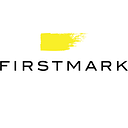How AI Is Changing The Way Products Are Designed, Built, and Distributed
Collaboration is at the heart of the tech ecosystem. The willingness of founders to share what’s working and what isn’t — in ways completely unlike any other industry — has been part and parcel of the ethos that has fueled technology’s growth, iteratively and explosively, over the past few decades. It’s also the inspiration behind Guilds by FirstMark — invite-only communities that bring together the best operating executives across the VC-backed technology landscape.
One of the reasons that Guilds have proven so valuable to our members (now 2,000+ strong, representing more than 60% of unicorns) is that it provides a forum to discuss what’s happening and what matters to leaders right now. And, unsurprisingly, the impact of Artificial Intelligence is currently topic number one.
We organized a series of working groups for each of the executive functions represented by Guilds: Engineering, Product, Marketing, Sales, Finance, and People. While much of the content discussed was private (Chatham House Rules apply to most Guild sessions), we’ve shared below some key observations on how AI is being adopted on the front lines of the world’s most innovative companies:
- Small, focused teams are adopting AI into products, workflows, and beyond. The best companies (of sufficient maturity and scale) have appointed some of their brightest stars as single-threaded leaders to run tight experiments on how AI can be integrated, with regular outward and upward reporting on what is and isn’t working.
- Encouraging a culture of experimentation…with clear guardrails. The best teams are embracing frontline experimentation with AI, doing things like giving individuals small AI experimentation budgets; creating shared Discord or Slack channels to share ideas, prompts, and experiments, or running internal AI hackathons. At the same time, the best companies are explicitly embracing the known unknowns of AI, making clearheaded decisions about where AI is and isn’t ready to be integrated into employee- or customer-facing tools. They are also creating a taxonomy of risks, and communicating clear guidelines to employees around potential copyright concerns, limitations around if/how AI-generated code can be committed to production systems, and beyond.
- AI is already making a substantial impact, right now, across the org. To over-generalize, AI is making a particular impact in two critical areas: First, where 100% accuracy is not a requirement (for example, many companies are using AI to generate outreach copy for Sales, while Finance teams are being much more cautious). Second, where AI is either augmented by a human (“human in the loop” use cases), or a human is augmented by AI (where AI serves as a catalyst to amplify the output or creativity of team members).
- The best companies are thinking 12–18 months ahead. We are all in the midst of understanding the second- and third-order consequences of this platform shift. Is ChatGPT the new search, and if so, what does “SEO for AI” look like? Will the cost of email/phone outreach to customer prospects go to zero, and if it does, will that destroy the efficacy of outbound? Will engineers begin to specialize in editing, rather than writing raw code, and what does that mean for the types of talent teams should recruit? The best leaders are forming an initial thesis about what’s possible and what’s likely — and beginning to position their own work and plans for that future.
Again, these are just four of the highest-order trends in real-world discussions across Guilds. For Founders and CXOs interested in having access to a peer community like Guilds, please click here to learn more.
Guilds by FirstMark are private, invite-only communities for exceptional C- and VP-level leaders from breakout technology companies. The Guilds come to life through regular live events, an online community, and a library of resources and insights that are only available to members.
Want to apply or refer an incredible CXO who should be a Guilds member? Click here.

